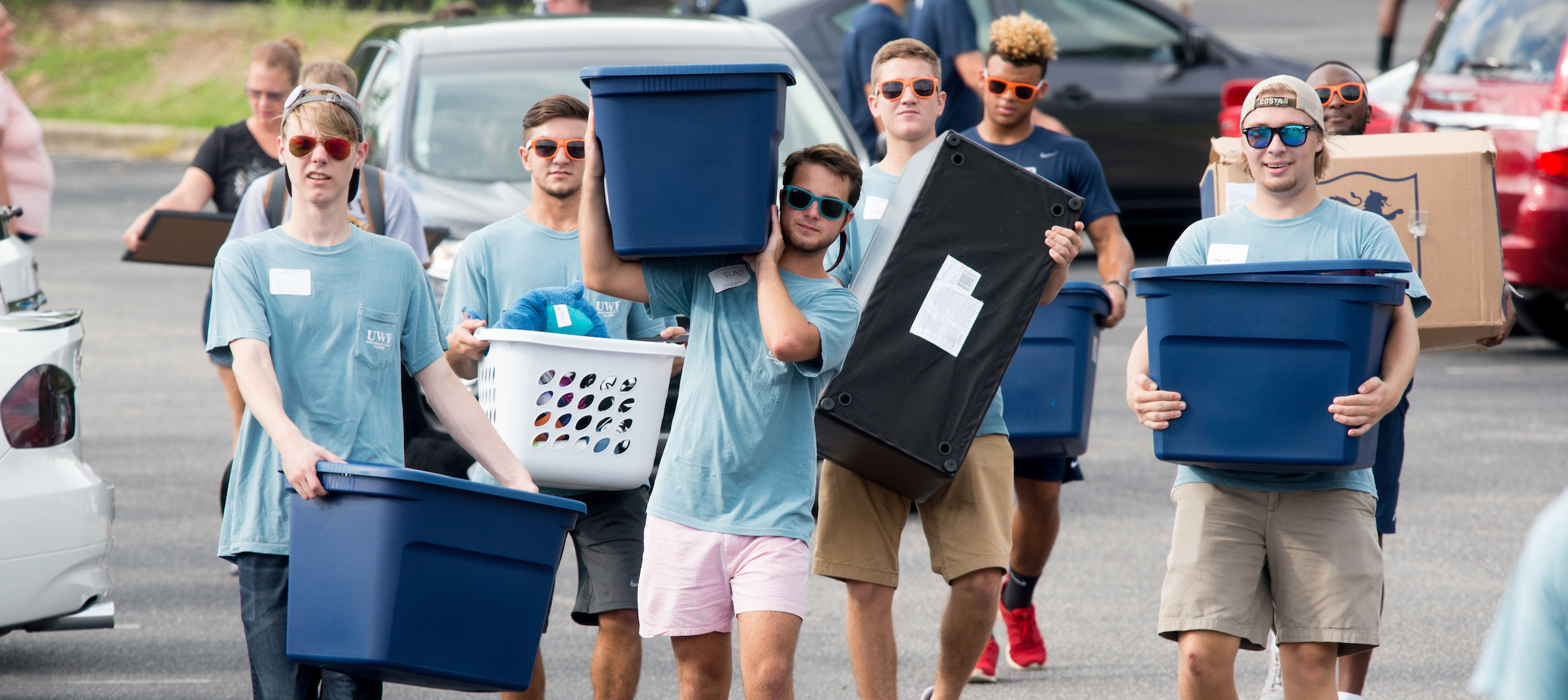Time Management, Other Tools Help Freshmen Make Smooth Transition from High School to College, Experts Say
Pensacola – Scores of freshmen are beginning their college careers as the new academic year gets underway.

It’s a stressful time.
Social and daily life issues compete with more rigorous academic demands for precious hours of each day.
Balancing real-life tasks (things like doing laundry) with academic expectations is the key, said Dr. Eric Kollar, director of advising for the College of Education and Professional Studies at the University of West Florida.
“The transition from high school to college involves these kind of real-life skills, and it is almost complete when a student has figured out how to manage daily life with academic demands,” he said.
Overcoming the challenge can present difficulty, and expectations in college classes can be overwhelming.
Kollar suggested building a “board of directors” to help handle the demands of college life. Students need a relationship with someone on the faculty or staff as well as peers who are like-minded and doing well. The board of directors might include a tutor or an academic advisor, too.
“Building these relationships gives students an anchor on which to tether the ever-evolving demands,” he said.
Sarah Fox, a career planning coordinator, also emphasized the importance of a network because it increases self-awareness and makes it easier to participate in activities with a group. She also underscored the need to communicate professionally with instructors.
“Professional communication is essential in college,” Fox said. “Without professional communication, a message can be misunderstood or even misinterpreted, so understanding how to properly delivery a message is critical even during freshman year.
She also stressed the importance of goal-setting in the process of transitioning from high school to college.
Fox said that goal setting should be done in the “SMART” framework. This means goals should be specific, measurable, attainable, realistic and timely. Another tool that helps students transition and become responsible for their own learning on their own time is called “IPSO” (issue, position, support and outcome.) Students should be able to identify each of these elements in whatever they are reading. Can a student read something and pick out the issue, the position of the writer, the support the writer uses and the outcome of the writing?
“Being able to summarize and identify these major aspects of a written or reading assignment lets students know where they stand when it comes to mastering a concept,” Fox said.

Kollar points out the importance of knowing how to teach a concept, too.
“If you can summarize and teach a concept to someone, then it is sure that the subject has been mastered,” he said. “This approach to learning material and analyzing it in detail shows that students have made the transition from regurgitating information as they were often asked to do in high school and applying the information as college-educated situations require,” he said.
Kollar also stressed the importance of the class syllabus in college.
“Keeping up with the syllabus and the information in it helps students know where they stand with their instructors, he said. “The syllabus contains information from basic expectations to due dates for class assignments, grading rubrics and guidelines for how to do projects.”
Students should ask themselves if they understand all the points available to them and the way their grade will be calculated, he said. All of this information is in the class syllabus. In high school, expectations might have been communicated on a weekly, if not daily, basis. The college instructor expects students to refer to the syllabus for up to date information and expectations.
Sara Halstead, assistant director of the Academic Center for Excellence, which provides free academic support services to all students enrolled at UWF, points out the need to be an active listener.
“Do reading before the class to familiarize yourself with the topic,” Halstead said. “Also, think about test preparation in a critical way. As students are going through material, they should ask themselves what questions might there be on the test that uses this information.”
Halstead also emphasized the importance of making the effort to study in an area that has no distractions.
Kollar and Fox both mentioned several studies that suggest that for every hour spent in class during college, two to three hours should be spent outside of class preparing. This includes time for reading material, reviewing notes and doing assignments. In high school, a lot of the learning and work takes place during class. Because college students are responsible for such a work load associated with classes, it behooves them to have some sort of time management strategy, Fox said. This strategy is something that needs to be in place as soon as the first-year student enters college.
Students transition from having most of their time structured for them in high school to having a relatively free schedule to manage. To make sure they can meet the rigor of a college class load, students should set aside study time in their daily schedules just as they set aside time to attend class.



